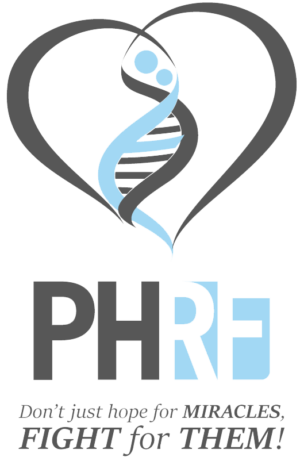Dear Pitt Hopkins Family,
It’s New Year’s, the time of year when many of us reflect in the hopes of making this year better than the last. And for special needs parents, it’s filled with questions. Will this be the year? The year that my child takes his first steps? Speaks his first words? Will this be the year that scientists finally come up with a treatment that can really help make my child’s life better?
We all work so hard at the first few questions. We drive to and from countless therapies. Spend sleepless nights on the internet researching. Why? Because those first steps, they feel inevitable. Every day they feel like they’re coming. So we don’t just wait and hope, we work for them. We hold our children’s hands and we promise not to let them go, not to let them down.
The last question, however, the one about treatments, sometimes that’s harder to work at. It can seem so intangible. So challenging. And it is. I can’t promise you that there will be treatments in 5 years or 10 or even 20. But I can promise you this: we are closer today than we were two years ago.
We now have researchers all over the country dedicated to eliminating the challenges of Pitt Hopkins through science. And I will tell you – they all work so hard because they believe it’s possible too. Just as sure as I am about my son, Calvin’s first steps. It may take a while. And there may be fits and starts. But treatments are a real possibility — treatments that could not just help our children walk, but to run, to soar. Of course there are no guarantees, except for this one– if we don’t continue to push on, to raise money to fund scientific research, I can promise it will never happen.
So how about this year we make another New Year’s resolution? And believe me, this is a lot easier than the crazy therapy schedules we all juggle. Let’s just reach out to the people around us – the people, whether you know it or not, who are so desperate to support you every day. See, if there is one thing I learned from the phenomenon of the ALS Ice Bucket Challenge, it’s that people want a chance to connect, to help.
Forget the gimmick, at its heart the Ice Bucket Challenge was simply friends asking friends for their help. I know I’m making it sound easier than it is. Asking people for money, even for a compelling and promising cause like ours, is hard. But what I find time after time is that the results are surprising and rewarding—not just the fact that people give, but that they give so happily and that they are so pleased to be making a difference. Trust me, you will never feel so loved. Or so hopeful. The two things special needs parents need – and deserve—more than anything.
I know what you’re probably thinking—well that’s nice; but how do I ask? What do I say? Do I do it in person? In a letter? An email? The truth is there’s no one-size-fits-all answer. My advice is to tell your story about why this cause matters so much to you. There’s no right or wrong way to do it. Keep it simple, be honest, and do it from the heart.
So this year, if you’re not already involved with events or our annual email campaign, try it. Try something. Anything. Start with just a few people and see what kind of response you get. I think you’ll be pleasantly surprised. I am here to help. Please do not hesitate to call or email me any time. (323-547-3628, Ericlapidus@hotmail.com)
Eric Lapidus

